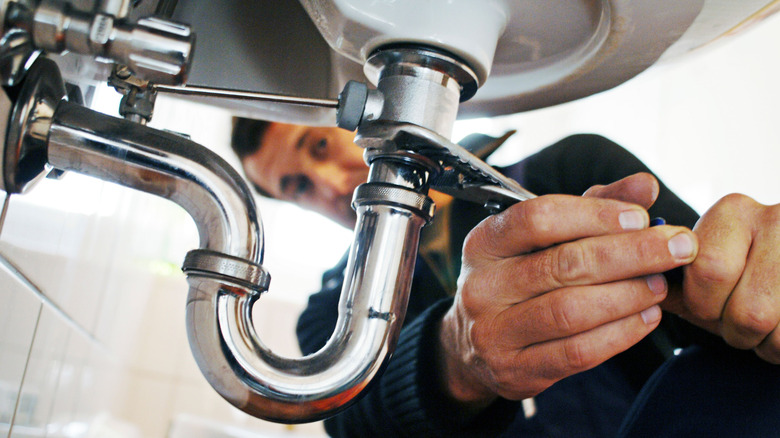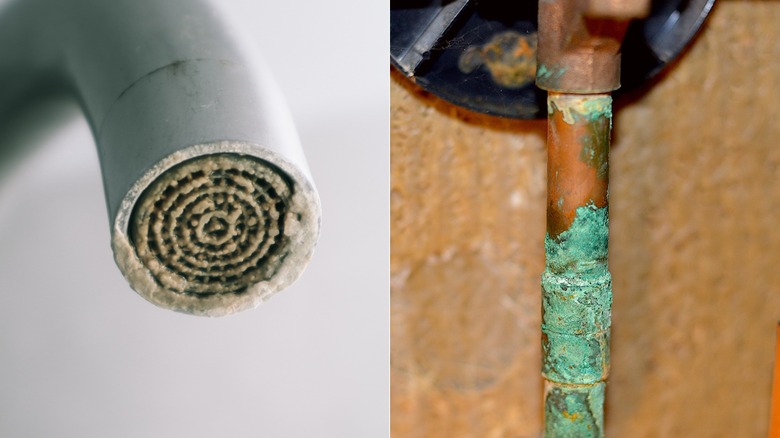Limescale Vs Corrosion: How To Tell Which Problem You're Dealing With
It's every homeowner's nightmare to be standing over their sink, turn on the faucet, and nothing but a trickle of water comes out. Usually, unless you're a full-fledged DIYer, this means an expensive call to the plumber. Of course, when is a call to the plumber not expensive? But before you start getting quotes, it's worth knowing what kind of situation you might have. If you have metal piping, and you've eliminated other causes for your slow faucet, you could be dealing with limescale buildup or corrosion. The difference between the two is important to know — one just causes a buildup of minerals in your pipes, and the other can cause buildup and literally eats away at your pipes.
Many vintage-home owners know the pain of dealing with plumbing issues, especially corrosion and limescale buildup — most older homes have clay or metal pipes, often copper or cast-iron plumbing. Often it will have them wondering if they should have kept the vintage plumbing in their historic home. But the limescale buildup can just as easily happen to those with modern PEX or PVC plumbing, especially if you live in a region with extremely hard water. Of course, to really understand what kind of problem you're dealing with, you need to do some investigating, and this might be a good time to decide if this is a plumbing project that you might need to call a professional for.
How to identify and fix limescale or corrosion issues in your plumbing
There are two types of scale when we're talking about plumbing issues: "oxidation scale" and "deposition scale." Limescale is a form of deposition scale formed by calcium carbonate. One telltale sign of limescale is a hard white film or crust on your faucets, shower walls, or pipe fixtures. If you have hard water, you'll likely deal with limescale issues in your plumbing and even in your appliances that use your home's water supply. The best option to prevent limescale from becoming an issue is to install a water softener at your main water line. If it's just one faucet that is affected by scale buildup, you can flush it with a scale remover or replace the fixture. If low water pressure is affecting all your fixtures, it might be time to call a plumber and get an assessment.
Corrosion is caused by the minerals in hard water breaking down the pipes in your home. If you notice rust stains, pinholes in pipes, leaks, or obvious rust on your plumbing, it is most likely corrosion. Corrosion can occur from oxidation scale, which is composed of different minerals than limescale. You can identify this type of scale by its rust color. It is caused by the minerals in your water reacting with metal in your plumbing and oxidizing — better known as rust. It is extremely damaging, and by the time you've noticed an issue, it means replacing pipes. You can also prevent corrosion with a water softener, and for additional insurance, a whole-home filter. The key to either of these issues with your plumbing is prevention.

